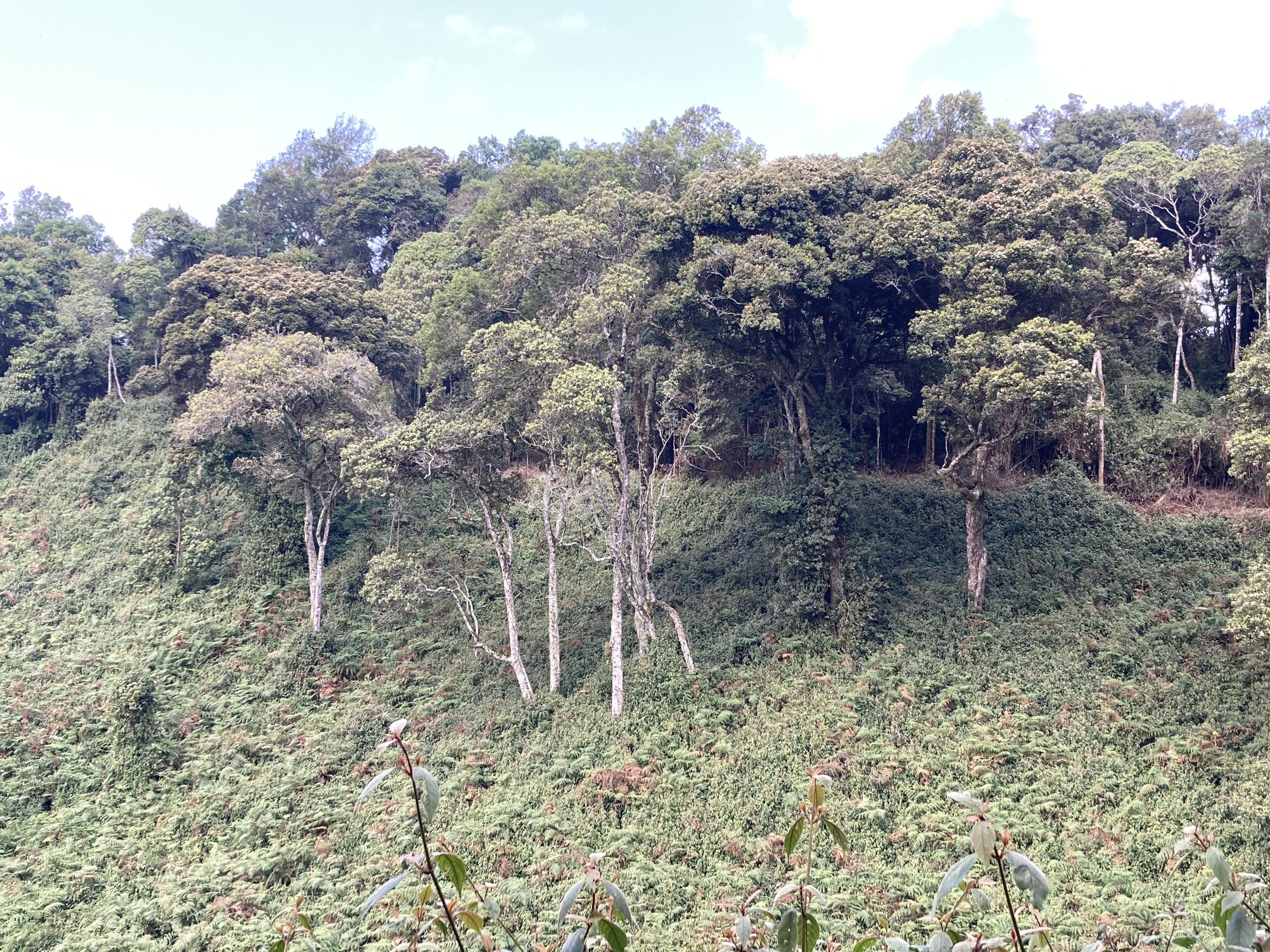By Richard B. Primack
“In the forenoon commonly I see nature only through a window – in the afternoon my study or apartment in which I sit is a vale.” Henry David Thoreau in his Journal.
Nyungwe National Park is located in southwestern Rwanda on the border with Birundi. It is readily reached from Kigali on excellent roads.
The park is a well-preserved and intact example of African montane tropical forest. The park itself has excellent facilities including visitor centers, restaurants, lodges and trails, and provides a safe, clean, and friendly experience.
Nyungwe is managed by African Parks and has a large and well-trained staff. Rangers must accompany visitors walking on the trails.
During our visit in July, the weather was pleasant during the day and cool at night, without any rain. Mosquitoes were rare and did not present any concern related to malaria.
 |
| Figure 1. The park includes 1000 km2 of intact montane forest. Water drains west to the Congo River and east to the Nile River. |
 |
| Figure 2. Due to the steep terrain and high rainfall, the trees are not tall and are often covered with moss. |
 |
| Figure 3. The flowering spikes of giant lobelias are a distinctive feature along roads and forest openings. |
 |
| Figure 4. Flowers of several species of touch-me-not plants add bright colors to the forest interior. |
 |
| Figure 5. Fallen flowers and leaves on the forest floor provide keys to what is happening above in the tree canopy. |
 |
| Figure 7. The park has many open areas caused by landslides on the steep terrain and by the past practice of villagers burning the forest to help find wild honeybee hives. |
 |
| Figure 8. Outside the park boundaries, large areas of forest have been replaced by tea plantations, owned by the village cooperatives. |

No comments:
Post a Comment